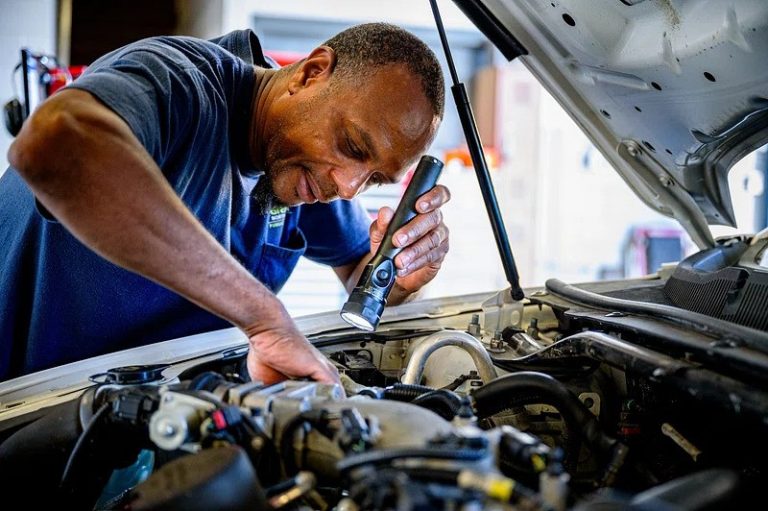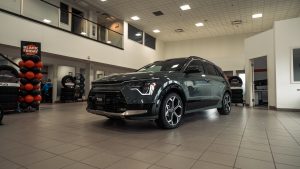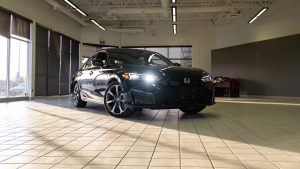Wondering what the difference is between regular braking and anti-lock braking systems (ABS) and how they impact your safety? When it comes to slowing down and stopping your vehicle, both serve the same purpose, but they function in very different ways. Let’s go over the pros and cons of regular and anti-lock braking.
What is Regular Braking?
Regular braking, or traditional braking, uses a hydraulic system to apply pressure to the brake pads, which clamp down on the rotors to slow down the wheels. In this system, the driver is fully responsible for controlling the brake pressure by pressing the brake pedal.
This method works in most situations, however during emergency stops or stopping on slippery surfaces, your wheels may lock up, causing your vehicle to skid and making it difficult to maintain control.
The Pros:
Simple and Low Cost: Regular braking systems are less complex and often cheaper to maintain.
Sufficient for Normal Conditions: For everyday driving on dry roads, regular brakes perform adequately.
The Cons:
Risk of Wheel Lockup: During sudden braking or on slippery surfaces, the wheels can lock up, leading to a loss of traction and control.
No Modulation in Emergencies: The system relies entirely on the driver to adjust pressure, which can be tricky in critical situations like emergency stops.
What is Anti-Lock Braking (ABS)?
Anti-lock braking systems (ABS) are designed to prevent your wheels from locking up during hard braking, especially on icy, wet, or loose road surfaces. ABS uses sensors to monitor the speed of each wheel and detects when a wheel is about to lock. When this happens, it pulses the brake pressure to that wheel, allowing it to keep rotating and maintain traction with the road. This prevents skidding and helps you maintain control of the vehicle while braking.
The Pros:
Improved Safety: ABS prevents wheel lockup, reducing the risk of skidding and allowing you to maintain control of the vehicle, especially in emergency situations or adverse weather.
Shorter Stopping Distances: ABS often results in shorter stopping distances in slippery conditions compared to regular braking systems.
Control During Braking: ABS allows you to steer the vehicle while applying the brakes, unlike regular brakes, which can lock the wheels and limit steering ability.
The Cons:
Higher Maintenance Costs: ABS is a more complex system, and repairs or maintenance can be more expensive than for regular brakes.
Pulsing Brake Pedal: When ABS engages, you may feel a pulsing sensation in the brake pedal, which can be disconcerting if you’re not used to it. However, this is a normal function of the system.
Not Always Shorter Stopping Distances: While ABS usually improves stopping distance, on gravel or loose surfaces, it may increase it slightly.
Are Anti-Lock Brakes Standard in Vehicles?
Yes, anti-lock braking systems (ABS) have become standard in most vehicles. In Canada, ABS became a mandatory feature in all new cars, light trucks, and SUVs since 2012. Today, nearly every new vehicle sold comes with ABS as a standard feature, but if you’re buying a used vehicle, particularly an older model, it’s essential to check whether it has ABS.
How to Turn ABS On and Off
The good news is that ABS is always on and does not require manual activation. When you start your car, the ABS system automatically checks itself, and you may see the ABS warning light briefly illuminate on your dashboard. This indicates that the system is working correctly.
How Birchwood Keeps You Safe
At Birchwood, we are committed to your safety. Our service centers are staffed with expert technicians who ensure your ABS system is functioning correctly. If your ABS warning light comes on or you’re unsure if your vehicle has ABS, we can help you diagnose and service your braking system to ensure it’s in optimal condition.

While regular braking systems work well in everyday driving, anti-lock braking systems (ABS) provide a higher level of safety and control, especially in emergency situations or adverse weather. For all your brake service needs, including regular or ABS system checks, visit us at Birchwood!


